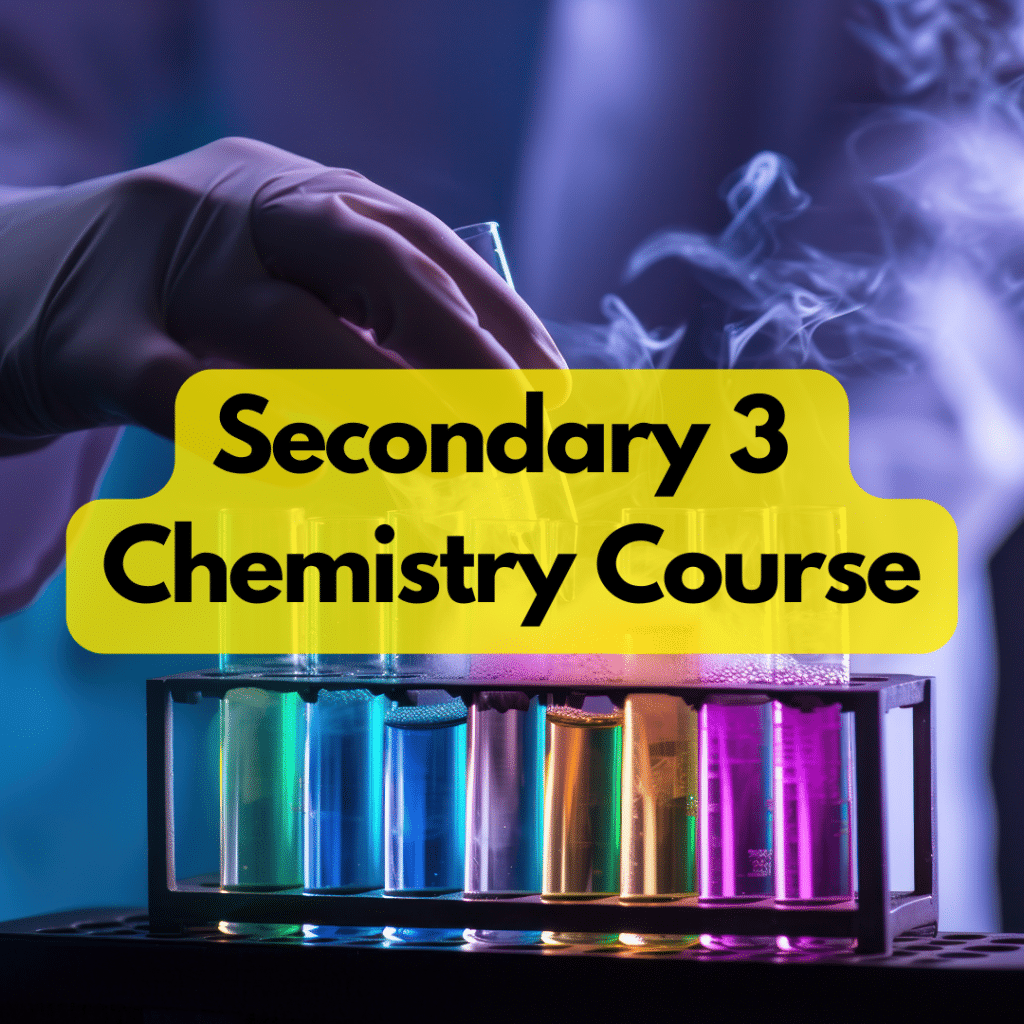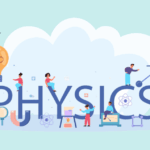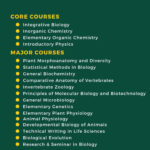Unlocking the Universe, One Molecule at a Time: My Adventure with a Chemistry Course
I remember a time when the word "chemistry" conjured up images of bubbling beakers, mad scientists, and equations that looked like alien hieroglyphs. It felt like something reserved for the super-smart, the lab coat-wearing elite. I certainly didn’t see myself among them. But then, life, as it often does, threw a curveball. I found myself needing to take a chemistry course, and honestly, a tiny part of me was terrified.
Let me tell you, that fear was utterly unfounded. What I discovered wasn’t a dry, intimidating subject, but a fascinating journey into the very building blocks of everything around us. It was like learning the secret language of the universe. If you’re standing where I once stood – curious, a little nervous, and wondering if a chemistry course is for you – then pull up a chair. I’m going to share my story, hoping it helps you find your own spark.
The Initial Spark: Why I Even Bothered
My reason for enrolling wasn’t some grand scientific ambition. It was a requirement for another field I was interested in. Initially, it felt like a hurdle I had to jump. I pictured long nights memorizing formulas and struggling with abstract concepts. But deep down, there was a tiny flicker of curiosity. I’d always wondered how things worked: why bread rises, why colors appear, or what exactly happens when you mix baking soda and vinegar. Could chemistry hold the answers?
Turns out, it did. My first day in that lecture hall, I was ready for a snooze-fest. Instead, my professor, Dr. Elena, started by telling us that chemistry isn’t just about chemicals; it’s about change. It’s about how things interact, transform, and create new things. Suddenly, it wasn’t just about memorizing; it was about understanding a fundamental force of nature. That simple idea shifted my whole perspective.
First Steps into the Molecular World: What You’ll Encounter
When you first step into a chemistry course, you’ll likely start with the absolute basics, which is a wonderful thing because it builds a strong foundation. Don’t worry, you won’t be synthesizing complex compounds on day one!
We began with atoms. Imagine them as tiny, invisible LEGO bricks that make up everything. We learned about their parts – protons, neutrons, electrons – and how these parts give each atom its unique personality. Then came the elements, neatly organized on the Periodic Table. At first, it looked like a giant grid of letters, but Dr. Elena showed us how it’s actually a map, telling stories about each element’s characteristics and how it likes to behave. It wasn’t scary algebra, but a kind of cosmic detective work.
Next, we delved into how these atoms connect to each other, forming molecules and compounds. This is where "bonds" come in – not the secret agent kind, but the forces that hold atoms together. Understanding these bonds helps you figure out why water is liquid, why salt is solid, or why sugar dissolves. It’s like learning the grammar of the universe’s language.
You’ll also get to grips with basic chemical reactions. This is where things really get exciting! You’ll see how one set of chemicals can rearrange themselves to become entirely different substances. It’s not magic; it’s just chemistry, playing out its intricate dance. We learned about different types of reactions: how things burn, how acids react with bases, and how energy is either released or absorbed during these transformations. It started to explain so many everyday phenomena.
The Lab: Where Theory Comes Alive (and Sometimes Explodes… Safely!)
For many, the lab component is either the most daunting or the most thrilling part of a chemistry course. For me, it was definitely the latter. This is where the magic really happened, where the abstract concepts from lectures materialized before my eyes.
I remember my first time setting up a titration, carefully adding a solution drop by drop until a color change indicated the reaction was complete. It felt like I was performing a delicate ballet. The smell of reagents, the clinking of glassware, the focused quiet broken only by the occasional "oops!" – it all became part of the experience.
Not every experiment went perfectly, of course. Sometimes my solution wouldn’t change color, or I’d spill something (minor spills, thankfully!). But those "failures" were often the best teachers. They forced me to re-think, re-read the instructions, and truly understand why something was supposed to happen. It taught me patience, precision, and the importance of following steps carefully – skills that extend far beyond the lab.
The lab isn’t just about memorizing procedures; it’s about developing critical thinking. You learn to observe, to record data accurately, and to draw conclusions based on your findings. It’s real, hands-on science, and it’s incredibly empowering.
The ‘Aha!’ Moments: When Things Click
There were so many "aha!" moments during my chemistry course. One particular one stands out: We were discussing acids and bases, and suddenly, it clicked. I understood why lemon juice cleans certain stains, why antacids help an upset stomach, and even why some shampoo makes your hair shiny. It wasn’t just theory anymore; it was woven into the fabric of my daily life.
Another big moment was understanding energy. We learned about exothermic reactions (those that release heat, like burning wood) and endothermic reactions (those that absorb heat, making things feel cold, like an instant cold pack). It explained cooking, respiration, and even how our bodies work. It was like seeing the world in HD for the first time, realizing that a hidden, intricate ballet of atoms and energy was constantly unfolding all around me.
These moments weren’t always easy to come by. There were days I felt completely lost, staring at a problem set with a blank mind. But with perseverance, asking questions, and working with classmates, those frustrating moments would often give way to clarity. And that feeling, when a complex concept finally makes sense, is truly satisfying.
Tips for Taming the Chemical Beast (Especially for Beginners)
If you’re thinking about taking a chemistry course, here’s what truly helped me, especially as someone who started with zero background:
- Don’t Cram: Chemistry builds on itself. If you miss a basic concept, the next topic will be even harder. Try to review your notes regularly, even for just 15-20 minutes a day.
- Ask Questions (No Matter How Silly They Seem): Seriously, if you don’t understand something, chances are someone else in the room doesn’t either. Your professor is there to help. Use office hours!
- Embrace the Lab: Don’t just follow instructions blindly. Try to understand why you’re doing each step. It’s your chance to see the theory in action.
- Connect it to Daily Life: Look for chemistry everywhere! Why does soap clean? How does a battery work? This makes the subject far more relatable and interesting.
- Find a Study Buddy: Explaining concepts to someone else is a fantastic way to solidify your own understanding. Plus, having someone to commiserate with (and celebrate with!) makes the journey much more enjoyable.
- Practice, Practice, Practice: Chemistry isn’t just about knowing facts; it’s about solving problems. Work through as many practice problems as you can.
Beyond the Classroom: Why Chemistry Matters Everywhere
My chemistry course wasn’t just about earning credits; it fundamentally changed how I view the world. Now, when I read an ingredient list on food, or hear about a new drug, or see discussions about climate change, I have a deeper appreciation for the underlying chemical processes.
Think about it:
- Medicine: Every drug, every vaccine, every diagnostic test is a product of chemistry.
- Food: From cooking to preservation to understanding nutrition, chemistry explains it all.
- Environment: Understanding pollution, developing renewable energy, and managing waste all rely on chemical principles.
- Technology: The materials in your phone, the screen you’re reading this on, the battery powering your devices – all chemistry.
Chemistry isn’t some obscure academic pursuit; it’s the invisible force behind nearly everything that makes our modern world function. It empowers you to make more informed decisions, to ask better questions, and to understand the incredible complexity and elegance of the universe.
So, What Are You Waiting For?
If you’re standing on the edge, wondering whether to dive into a chemistry course, I wholeheartedly encourage you to take the plunge. It might feel challenging at times, but the rewards are immense. You’ll gain not just knowledge, but a new way of seeing the world – a world alive with reactions, transformations, and endless possibilities.
It’s not just for the super-smart; it’s for anyone curious enough to ask "how?" and "why?". My journey from apprehension to fascination was one of the most enriching experiences of my academic life. Yours could be too. Don’t just observe the world; understand how it’s built, one amazing molecule at a time. Go ahead, unleash your inner chemist!



